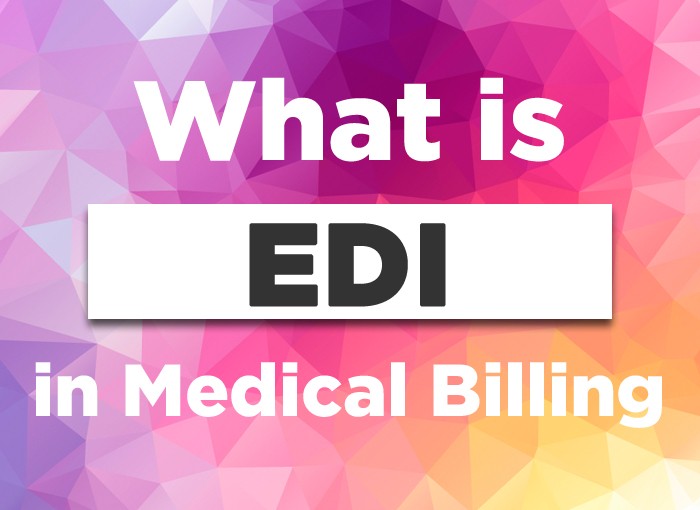What does EDI stand for in Medical Billing
The health care industry is an intricate web of many medical administrative services like medical billing, insurance reimbursement, claims submission, patient enrollment, compliance management, etc. All of these administrative services are quite complicated due to various steps involved in data collection, verification and record management. To make the medical administrative services hassle-free, effective and efficient HIPAA (Health Insurance Portability and Accountability Act of 1996) has proven to be quite successful with its national standards for electronic transactions in the health care industry. In addition to this HIPAA also ensures that all the health care providers, health care insurance payers, suppliers, etc are identified to keep an accurate record of medical claims. For this purpose, EDI was introduced as an ultimate solution to maintain the integrity of the health care system by recording all the necessary data electronically. This also helps in promoting transparency within the health care industry.
Definition of EDI
The term EDI stands for Electronic Data Interchange—a technology that allows organizations within the health care system to send and receive data electronically by using standardized formats. The standard formats available under HIPAA EDI for claim transactions interchange are as following:
- Health Care Claim Transaction set (837)
- Retail Pharmacy Claim Transaction (NCPDP
- Health Care Claim Payment/Advice Transaction Set (835)
- Benefit Enrollment and Maintenance Set (834)
- Payroll Deducted and other group Premium Payment for Insurance Products (820)
- Health Care Eligibility/Benefit Inquiry (270)
- Health Care Eligibility/Benefit Response (271)
- Health Care Claim Status Request (276)
- Health Care Claim Status Notification (277)
- Health Care Service Review Information (278)
- Functional Acknowledgement Transaction Set (997)
Before, HIPAA EDI, organizations/hospitals in the health care industry used various kinds of paper-based forms to share the information. The problem with paper-based claim transactions was that due to lack of standard format the claim transaction information on the forms varied from hospital to hospital. This made it impossible to keep track of data without making any errors.
Benefits of EDI in the Medical Billing
Standard Format: With HIPAA EDI there is a standard format for all kinds of claim transaction forms. This helps in sharing uniform information without any confusion and discrepancy. Now, the data is more accurate, compliant, and organized.
Increased Accuracy, Efficiency and Productivity: EDI makes the data interchange much faster and accurate. The data updated in the medical billing system is error-free and transferred immediately to other parties. Error-free documentation increases the chances of full reimbursement.
Cost Savings: As compared to paper-based claim transactions, EDI is less expensive due to ease of processing. Zero requirements of paper eliminate paper purchases, document print-outs, and storage costs. It also eliminates the risk of losing documents or files.
High-end Security: EDI is designed to keep the claim transaction data secured by limiting the interchange of patient information only to authorized parties. In order to be part of EDI, the health care providers, insurance payers, and suppliers are required to meet the eligibility criteria and fill the Centers for Medicare & Medicaid Services (CMS) standard Electronic Data Interchange (EDI) enrollment form. This also helps in preventing HIPAA violations, if any.




